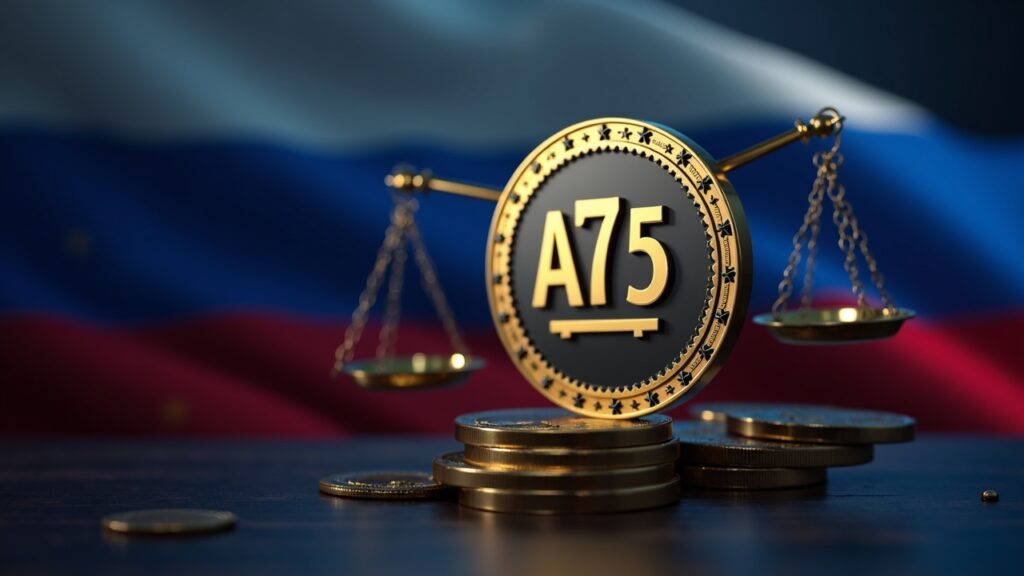The European Union is preparing sanctions that single out A7A5 after evidence it helps users dodge the financial blockade on Russia. The proposed ban would hit crypto platforms, linked banks and the tracking of cross-border transfers. A7A5 has already shifted large sums despite earlier U.S. and U.K. blacklisting, raising compliance and operational hazards for exchanges, custodians and risk teams.
A7A5 is a token fixed to the Russian ruble and has moved sizable volumes even under sanctions pressure. As a stablecoin, it is a token whose value is tied to an asset—in this case, the ruble—to keep a 1:1 ratio. The EU’s contemplated action would extend oversight to crypto platforms and related banking channels while intensifying scrutiny on cross-border transaction flows.
The United States and the United Kingdom sanctioned Garantex and Grinex for alleged money-laundering and sanctions breaches, yet A7A5 still processed billions of dollars. TRM Labs told Garantex started routing money into A7A5 in January 2025, underscoring how volumes persisted despite restrictions.
The EU draft also targets two small Chinese banks that trade with Russia, a rare step that Bloomberg says heightens geopolitical friction. This expansion beyond token-specific measures indicates a broader attempt to choke off intermediary channels.
A7A5 and its issuer Old Vector are tied to Kyrgyzstan registrations, with Old Vector already on sanctions lists. A wrapped variant, wA7A5, runs on Tron alongside Ethereum, and the project schedule lists DEX and CEX listings plus smart-contract audits to lift liquidity and bridge activity.
Likely effects and market implications
Blacklisting A7A5 or the two Chinese banks would stretch controls beyond Europe, and any exchange or custodian that touches the token must add extra checks, according to Bloomberg and TRM Labs. This raises the operational burden and heightens oversight requirements across jurisdictions.
CEX and DEX listings, together with wA7A5’s cross-chain design, enable swaps across networks; a ban would likely shrink liquidity and widen spreads on pairs that settle in A7A5, affecting pricing and market depth.
The flow of billions through A7A5 shows earlier curbs only partly worked, suggesting users may shift to harder-to-see channels if additional restrictions are imposed.
A7A5 sponsoring booths at TOKEN2049 while under sanctions weakens the appearance of firm control and may reduce institutional willingness to face counterparties linked to the token.
The EU Council must now vote on the draft. If the text passes, A7A5 will be frozen inside Europe and pressure will spread to the two intermediary banks, shaping how platforms and counterparties handle exposure linked to the token.


